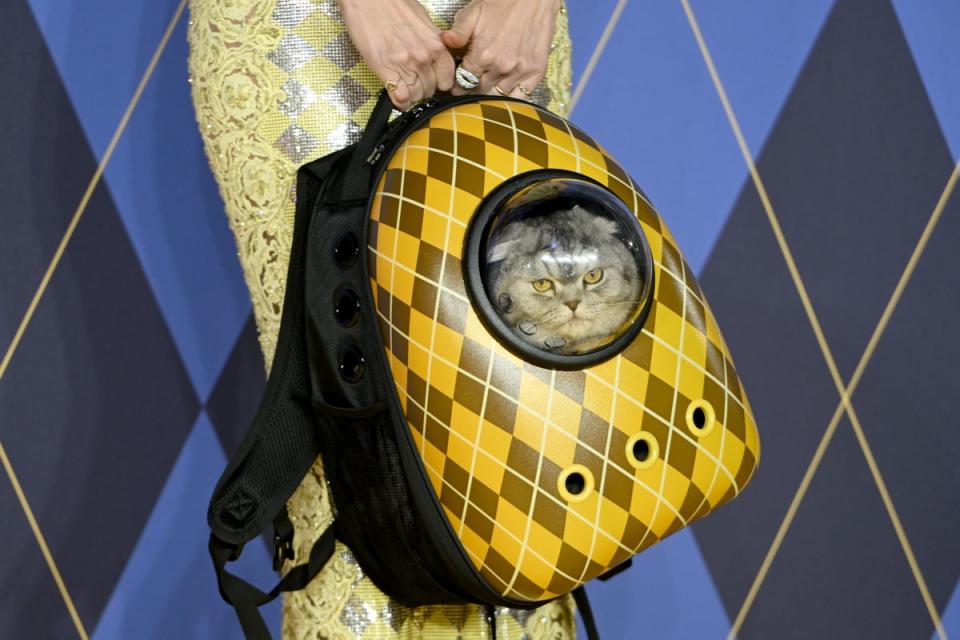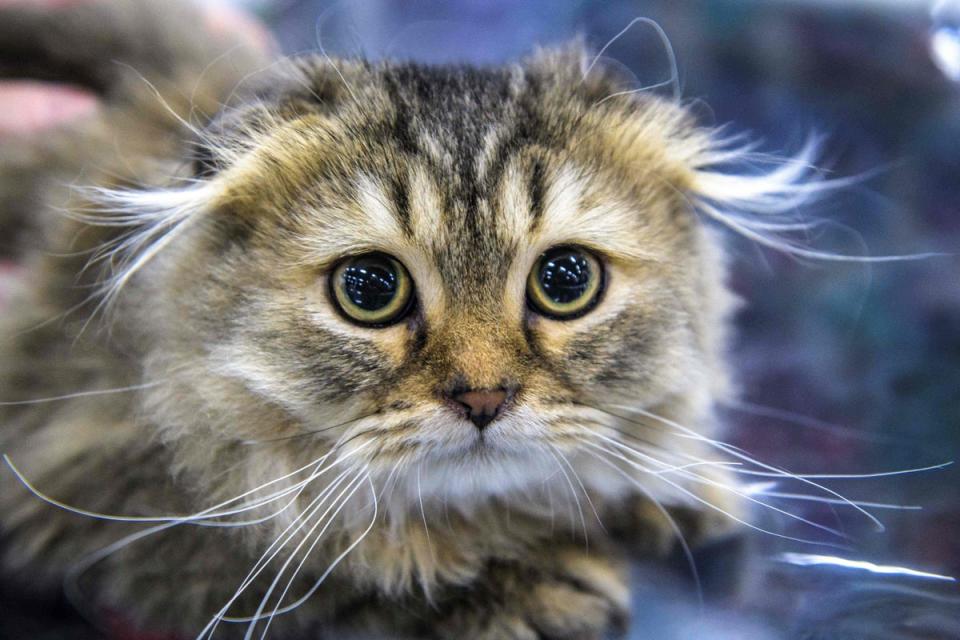Animal charities slate makers of new film Argylle over use of Scottish Fold cat

Animal-welfare organisations have slated the makers of a new film featuring a breed of cat associated with “serious health and welfare concerns”.
UK charity Cats Protection is among those who have raised concerns over the upcoming film Argylle, which is due to be released by Universal Pictures on 2 February.
The film features a Scottish Fold cat, a breed the animal organisations said suffers from painful degenerative joint disease, which has “far-reaching and severe consequences for their health”.

They fear the release of the film will increase the popularity of the breed among potential cat owners.
Cats Protection said it also fears the film’s “realistic portrayal” of the cat travelling in a backpack and being “handled roughly” suggests these interactions are “acceptable or entertaining”, leading to a potentially negative impact on animal welfare. An example they cited was the large window in the rucksack featured in Argylle, which could leave a cat “feeling exposed and vulnerable”.
The organisations said they have written to Universal Pictures to “consider the potential impact of Argylle on cat welfare and to join the efforts to promote responsible pet ownership, prioritising the wellbeing of animals above entertainment value”.
It is the cat Chip of the film’s director Matthew Vaughn and his actor wife Claudia Schiffer who plays protagonist Elly Conway’s pet in Argylle.
The forthcoming Apple TV+ film is a spy thriller, starring Henry Cavill as the titular spy.

Cats Protection’s Head of Clinical Services Alison Richards said: “The impact of using this breed in a Hollywood film cannot be overstated.
“All Scottish Fold cats suffer from variable degrees of painful degenerative joint disease and the underlying genetic defect has far-reaching and severe consequences for their health. They go on to develop painful arthritis and it develops it so reliably that it’s being used as a model to study the gene involved in human arthritis.
“They’re already very popular on social media and with celebrities, so we really worry that this film will cause this to surge even more.”
She added: “Though some cats may appear to tolerate backpacks, the movement on a person’s back is unpredictable and most lack adequate ventilation and space for the cat – leaving them cramped or uncomfortable. The large window in the bubble backpack featured also means cats don’t have the option to hide when they feel anxious, leaving them feeling exposed and vulnerable.”
The charity said there are ongoing efforts among European veterinary groups to address the issue of promoting pet breeds with extreme features in the media.
Ms Richards cited research showing a surge in the number of pedigree cats being bought as pets, including those bred with serious health conditions. According to the research, while 17 per cent of obtained cats were purebred more than five years ago, she said this figure shot up to 42 per cent over the last year.
She added that Scottish Folds make up a relatively small portion of the UK cat population – but recent data suggests a rise in interest, with around 1 per cent of cats now being of the breed (110,000).
The Independent has approached Universal Pictures for comment.

 Yahoo Movies
Yahoo Movies 
